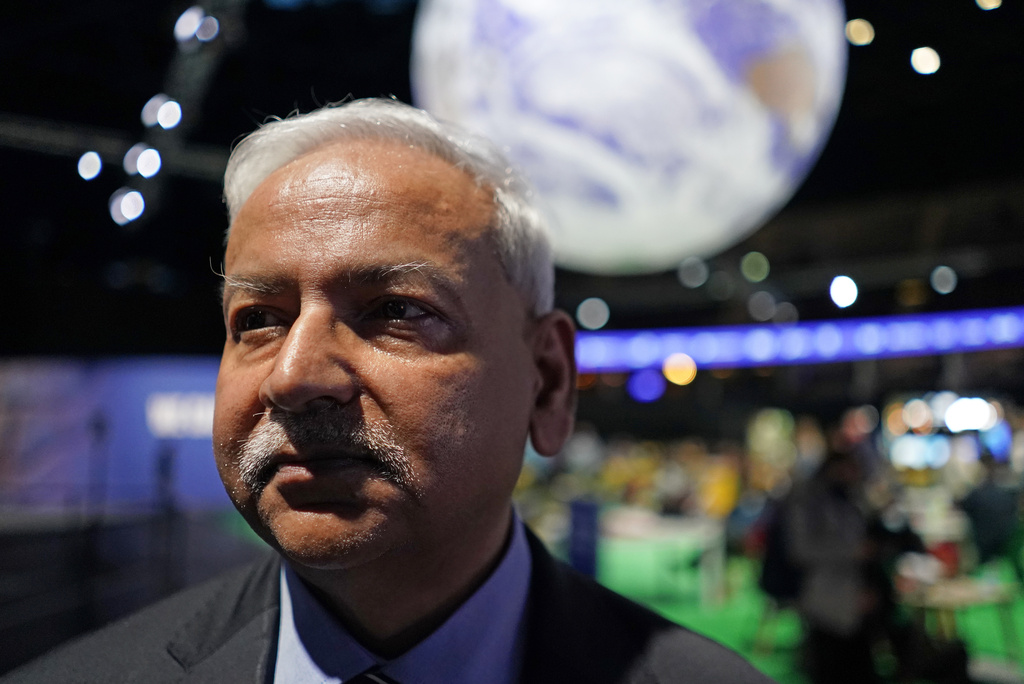Saleemul Huq, a pioneering climate scientist from Bangladesh who pushed to get the world to understand, pay for and adapt to worsening warming impacts on poorer nations, died of cardiac arrest Saturday. He was 71.
“Saleem always focused on the poor and marginalized, making sure that climate change was about people, their lives, health and livelihoods,” said University of Washington climate and health scientist Kristie Ebi, a friend of Huq’s.
[time-brightcove not-tgx=”true”]
Huq, who died in Dhaka, directed and helped found the International Centre for Climate Change and Development there. He was also a senior associate and program founder at the International Institute for Environment and Development in London and taught at universities in England and Bangladesh. He was an early force for community-based efforts to adapt to what climate change did to poor nations.
Read More: What Bangladesh Can Teach the World About Talking About Climate Change
Queen Elizabeth II bestowed the Order of the British Empire on him in 2022 for his efforts.
“As a dual Bangladeshi and British citizen, I have been working for two decades to enhance collaboration between the universities and researchers in both countries to tackle the twin global challenges of poverty eradication and dealing with climate change,” Huq said in receiving the honor.
Huq published hundreds of scientific and popular articles and was named as one of the top 10 scientists in the world by the scientific journal Nature in 2022.
“Your steadfast dedication to those impacted by climate change, even until your last breath, coupled with your advocacy for the poorest and most vulnerable, has crafted a legacy that stands unparalleled,” Climate Action Network’s Harjeet Singh posted in a tribute on X, formerly known as Twitter.
For years, one of Huq’s biggest goals was to create a loss and damage program for developing nations hit hard by climate change, paid for by richer nations that mostly created the problem with their emissions. United Nations climate negotiators last year approved the creation of that fund, but efforts to get it going further have so far stalled.
Huq, who had been to every United Nations climate negotiations session, called Conferences of Parties (COP), started a 20-year tradition of a special focus on adapting to climate change, initially called Adaptation Days, said Ebi. He did it by bringing a rural Bangladeshi farmer to the high-level negotiations to just talk about her experiences.
That’s now blossomed into a multi-day event and focuses on adaptation, said former U.S. Environmental Protection Agency official Joel Smith, a friend of Huq’s.
At those COPs, Huq was so busy, talking to so many people, that his friends and colleagues used to joke when they couldn’t find him at his makeshift office that “Saleem is everywhere … he’s just not here,” Ebi said. People swarmed him to talk at the negotiations.
“I fear the developing countries have lost an incredible voice,” Smith said.
It wasn’t just what Huq did, but how he worked, with humor, persistence and calmness, Smith said.
“I never saw him get upset,” Smith said. “I never saw him raise his voice. There was an equanimity about him.”
Smith and Ebi said Huq also fostered a program of countless young scientists from the developing world, who he would help connect with others.
“Much of the nature of the negotiations today has to do with the all the scientists from least developed countries who went through Saleem’s training program,” Ebi said.
Huq leaves his widow, a son and daughter.

